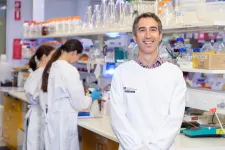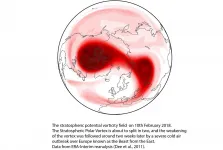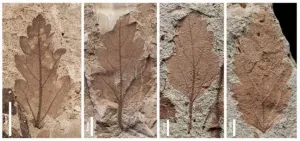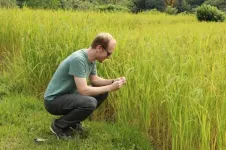(Press-News.org) Australian research has identified a new mechanism in which prostate cancer cells can 'switch' character and become resistant to therapy.
These findings, just published in Cell Reports, are an important development in unravelling how an aggressive subtype of prostate cancer, neuroendocrine prostate cancer (NEPC), develops after hormonal therapies.
It is well established that some tumours show increased cellular 'plasticity' in response to new or stressful conditions, such as cancer therapy, says lead researcher Associate Professor Luke Selth, from the Flinders Health and Medical Research Institute.
This plasticity allows the cancer cells to adapt and continue to grow by evolving into different cell types that no longer respond to the therapy.
"Increased cellular plasticity is increasingly recognised as a key feature by which prostate cancers become resistant to therapy and progress to a lethal stage," he says.
"Our new study reveals that a particular molecule, the microRNA 'miR-194', can enhance this plasticity in prostate cancer, leading to the emergence of NEPC.
"By targeting miR-194, we were able to slow down and inhibit the growth of prostate cancer models with neuroendocrine features."
Associate Professor Selth says while this study is a long way from clinical application, it "nevertheless provides us with important new insights into how prostate cancers 'evolve' in response to therapy".
There are currently no effective treatments for NEPC, with estimates up to 15% of men may develop this aggressive subtype of prostate cancer after hormonal treatment - a major problem because these men face "very poor outcomes".
"By revealing another regulator of prostate cancer cell plasticity that can promote evolution of tumours, our study highlights why prostate cancer is so difficult to cure.
"While this reality is sobering, we hope that our study and lots of other research going on around the world will eventually lead to smarter, more targeted ways to treat NEPC or even prevent its emergence," Associate Professor Selth says.
INFORMATION:
The new paper, 'Post-transcriptional gene regulation by microRNA-194 promotes neuroendocrine transdifferentiation in prostate cancer' (2021) by RC Fernandes, J Toubia, S Townley, AR Hanson, BK Dredge, KA Pillman, AG Bert, JM Winter, R Iggo, R Das, D Obinata, MURAL investigators, S Sandhu, GP Risbridger, RA Taylor, MG Lawrence, LM Butler, A Zoubeidi, PA Gregory, WD Tilley, TE Hickey, GJ Goodall and LA Selth has been published in Cell Reports (Elsevier) DOI: 10.1016/j.celrep.2020.108585
Acknowledgement: This research was funded by the NHMRC, Cancer Council of South Australia, National Breast Cancer Foundation, Victorian Cancer Agency, the Movember Foundation and Prostate Cancer Foundation of Australia. Flinders University Associate Professor Selth is supported by a Principal Cancer Research Fellowship awarded by Cancer Council's Beat Cancer project on behalf of its donors, the South Australian Government through the Department of Health, and the Australian Government's Medical Research Future Fund.
Co-authors include experts from The University of Adelaide, ACRF Cancer Genomics Facility (SA Pathology and UniSA), Centre for Cancer Biology, Institut Bergonié Unicancer (France), Northwestern University (US), Nihon University School of Medicine (Japan), Monash University, University of Melbourne, SAHMRI and University of British Columbia (Canada).
What The Study Did: Data from public health surveillance of reported COVID-19 cases and seroprevalence surveys were used in this observational study that reports an estimated 46.9 million SARS-CoV-2 infections, 28.1 million symptomatic infections, 956,174 hospitalizations and 304,915 deaths occurred in the U.S. through November 15, 2020.
Authors: Frederick J. Angulo, D.V.M., Ph.D., of Medical Development and Scientific/Clinical Affairs of Pfizer Vaccines, is the corresponding author.
To access the embargoed study: Visit our For The Media website at this link https://media.jamanetwork.com/
(doi:10.1001/jamanetworkopen.2020.33706)
Editor's ...
A new study led by researchers at the Universities of Bristol, Exeter, and Bath helps to shed light on the winter weather we may soon have in store following a dramatic meteorological event currently unfolding high above the North Pole.
Weather forecasting models are predicting with increasing confidence that a sudden stratospheric warming (SSW) event will take place today, 5 January 2021.
The stratosphere is the layer of the atmosphere from around 10-50km above the earth's surface. SSW events are some of the most extreme of atmospheric phenomena and can see polar stratospheric temperature increase by up to 50°C over the course of a few days. Such events ...
By André Julião | Agência FAPESP - The black lion tamarin (Leontopithecus chrysopygus) once inhabited most forest areas in the state of São Paulo, Southeast Brazil, but currently occupies only some Atlantic Rainforest remnants there. In recent years, after various studies of the endangered species, environmental NGO Instituto de Pesquisas Ecológicas (IPÊ) moved groups of these animals to areas from which the species had disappeared.
Similar initiatives have now been reinforced by a group of researchers at IPÊ, São Paulo State University (UNESP) and the Federal University of Mato Grosso (UFMT), who cross-tabulated climate data and data on landscape (forest cover) to determine the sites best suited for future ...
The asteroid impact 66 million years ago that ushered in a mass extinction and ended the dinosaurs also killed off many of the plants that they relied on for food. Fossil leaf assemblages from Patagonia, Argentina, suggest that vegetation in South America suffered great losses but rebounded quickly, according to an international team of researchers.
"Every mass extinction event is like a reset button, and what happens after that reset depends on which organisms survive and how they shape the biosphere," said Elena Stiles, a doctoral student at the University of Washington who completed the research as part of her master's thesis at Penn State. "All the biodiversity ...
PROVIDENCE, R.I. [Brown University] -- Last month, Japan's Hayabusa2 mission brought home a cache of rocks collected from a near-Earth asteroid called Ryugu. While analysis of those returned samples is just getting underway, researchers are using data from the spacecraft's other instruments to reveal new details about the asteroid's past.
In a study published in Nature Astronomy, researchers offer an explanation for why Ryugu isn't quite as rich in water-bearing minerals as some other asteroids. The study suggests that the ancient parent body from which Ryugu was formed had likely dried out in some kind of heating event before Ryugu came into being, which left Ryugu itself drier than expected.
"One of the ...
Repeated intravenous (IV) ketamine infusions significantly reduce symptom severity in individuals with chronic post-traumatic stress disorder (PTSD) and the improvement is rapid and maintained for several weeks afterwards, according to a study conducted by researchers from the Icahn School of Medicine at Mount Sinai. The study, published September XX in the American Journal of Psychiatry, is the first randomized, controlled trial of repeated ketamine administration for chronic PTSD and suggests this may be a promising treatment for PTSD patients.
"Our findings provide insight into the treatment efficacy of repeated ketamine ...
As the world grows increasingly globalized, one of the ways that countries have come to rely on one another is through a more intricate and interconnected food supply chain. Food produced in one country is often consumed in another country -- with technological advances allowing food to be shipped between countries that are increasingly distant from one another.
This interconnectedness has its benefits. For instance, if the United States imports food from multiple countries and one of those countries abruptly stops exporting food to the United States, there are still other countries that can be relied on ...
SAN ANTONIO and CHICAGO - An article published Jan. 5 in Alzheimer's & Dementia: The Journal of the Alzheimer's Association cites decades of published scientific evidence to make a compelling case for SARS-CoV-2's expected long-term effects on the brain and nervous system.
Dementia researchers from The University of Texas Health Science Center at San Antonio (UT Health San Antonio) are the first and senior authors of the report and are joined by coauthors from the Alzheimer's Association and Nottingham and Leicester universities in England.
"Since the flu pandemic of 1917 and 1918, many of the flulike diseases have been associated with brain disorders," said lead author ...
DURHAM, N.C. -- Self-control, the ability to contain one's own thoughts, feelings and behaviors, and to work toward goals with a plan, is one of the personality traits that makes a child ready for school. And, it turns out, ready for life as well.
In a large study that has tracked a thousand people from birth through age 45 in New Zealand, researchers have determined that people who had higher levels of self-control as children were aging more slowly than their peers at age 45. Their bodies and brains were healthier and biologically younger.
In interviews, the higher self-control group also showed they may be better equipped to handle the health, financial and social challenges of later life as well. The researchers used structured interviews and credit checks ...
NEW YORK, NY (1/5/2021) - Subtle changes in speech and language can be an early warning sign of Alzheimer's -- sometimes appearing long before other more serious symptoms. The challenge is recognizing these changes and determining what may signal Alzheimer's or other neurodegenerative disorders. In a commentary in END ...







